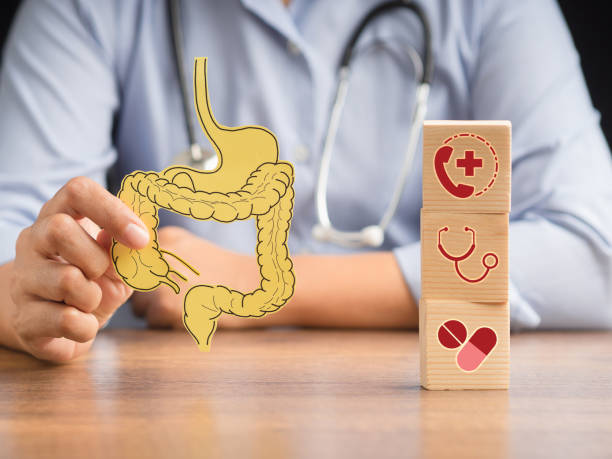How Stress Affects Digestion and What You Can Do About It
In the vast and complex world of human health, there are certainly no two links more powerful and, at the same time, unobvious as the one that interconnects our psychological state and gastrointestinal tract. “Mind Your Gut: The literal title of this article, “How Stress Affects Digestion and What You Can Do about It,” is more than just words; it’s the key to understanding that our stomach is as vulnerable to stress as our mind is. Everyday life stuns us with stressors work-related, health, financial, and emotional issues that form a stressful mess of physiological reactions that have a devastating impact on our digestion.

The Gut-Brain Connection: A Biological Symphony
Mind Your Gut: Stress and digestion and what you can do are outlined as follows: The first step toward learning the effects of stress on digestion is exploring the body’s communication system. This interaction is referred to as the gut-brain axis since it is a web of neural headings, hormones, and immune system messengers. As stress appears, the physical reactions related to it seriously change the workings of the digestive system.
The gut, or enteric nervous system, also sometimes called the second brain, is made up of more than 100 million nerve cells in the gastrointestinal system. They are the only nerve cells that are linked directly to the CNS, and this implies that every possible change in emotion can bring about a digestive reaction. Cortisol and adrenaline give muscles a shake-up, blood flow takes a swing around the block, and a number of digestive processes slow down or go rampant.
Stress-induced Digestive Disruption: Some Mechanisms
When exploring Mind Your Gut: Digestive Stress in Digestive Health: How Stress Affects Digestion and What You Can Do About It, it is important to elaborate on the concrete ways stress impacts the human body. Stress raises the levels of stomach acids, which may result in heartburn and acid reflux. The digestive tract becomes oversensitive, and this results in inflammation and worsens certain diseases, including IBS, Crohn’s disease, and ulcerative colitis.
However, huge stress also affects the intricate balance of bacteria known as the microbiome present in our intestines. Chronic stress means changing the ratio between helpful and pathogenic microbiota, which may have an impact on the immune system and cause chronic digestive disorders. So it will be observed from several studies that stress may lead to a reduction in healthy bacteria by about 40 percent and thus increase the risks for digestive problems.
This, in turn, will help the patient recognize stress-related symptoms such as abdominal pains, bloating, constipation, and diarrhea.
Mind Your Gut: How Stress Affects Digestion and What You Can Do About It includes knowing the signal. Some of the signs are uncontrolled swelling, overweight/underweight, changes in bowel habits, stomach aches, and vomiting without reason. These manifestations are not merely uncomfortable; they are your body’s complex mechanism for chronic stress-induced imbalances at the biochemical level.
People who have high levels of chronic stress might experience such changes as changes in the sensitivity to certain types of food, more frequent digestive issues, and increased gut permeability. This state is informally called ‘leaky gut,’ and inflammation throughout the body, especially autoimmunity and overall health issues, maybe elicited by this condition.
Comprehensive Health Approach to the Stomach and Bowels
Addressing Mind Your Gut: Stress Management on Digestion and What to Do about It will have to embrace various strategies. Adjustments in diet are also very important in discovering digestive health, especially for those who undergo stress. Yogurt, kefir, and agitated vegetables should be taken in order to help the bacteria in the stomach to regain their normalcy. At the same time, the amount of treated foods, caffeine, and alcohol should also be cut down in order to avoid more stress on the digestive scheme.
Prayer and meditation practices come forward as potent interventions in the alleviation of stressed-related gastrointestinal complaints. Specifically, meditation has been found to decrease cortisol levels dramatically; deep breathing exercises and yoga have also been found effective in enhancing digestive health significantly. Another key area is, of course, exercise and other physical activities; these help to regulate bowel movements and produce endorphins to reduce the effects of stress-related hormones.
Dietary Management and Feeding Programs
Nutrition stands as a cornerstone in Mind Your Gut: How stress impacts digestion and what can be done Taking in foods rich in some nutrients such as glutamine, zinc, and omega-3 fatty acids will go a long way in the healing of the gut lining and decreasing inflammation. Especially ashwagandha and Rhodiola are adaptogens that can further support the stress response and regulate cortisol levels and the cortisol stress response.
Support from nutritionists and functional medicine practitioner’s offers a tailored approach on how to manage digestive issues based on the client’s gut health. They may refer you to specialized tests to determine certain microbiome imbalances or foods that the patient should avoid because they cause symptoms of gut issues.

How to Change Your Lifestyle to Preserve the Health of Your Digestive System in the Future
Implementing sustainable lifestyle changes represents the most effective approach to Mind Your Gut. What Stress Does to Digestion and What Can Be Done About It? Likely the most important daily practices for decreasing digestive stress are regularity of sleep, meals, and water consumption and strong stress coping mechanisms.
Technology: technology and the division between work and home begin to blur. Designing reasonable boundaries over online use, taking regular digital fasting, and designing appropriate downtime can significantly diminish symptoms of chronic stress, which in turn promotes digestive health.
Conclusion:
Mind Your Gut: The title for the final chapter, ‘’How Stress Affects Digestion and What You Can Do About It,” is, therefore, about the fundamental oneness of our organism. By realizing stress is one of the most influential elements in health and implementing broad-ranging health-promoting approaches, these changes reconstruct the stress relationship as well as promote efficient digestion.
Digestive health improvement is a unique, time-consuming process that requires not only persistence, understanding, and interest in non-conventional ideas. With the progress in modern science all the time, we are gradually beginning to realize how enormously rugged and incredibly self-repairing the human body is and can be.

FAQs
How fast does stress affect digestive health?
Stress can elicit a direct effect on the digestive system as early as 30 minutes. On the other hand, the gut-brain connection also implies that, for example, disgust, anxiety, or other feelings can immediately cause any tic, feeling of butterflies, nausea, or digestive functioning changes.
Are digestive problems compelled by stress?
Almost all stress-related stomach disorders are treatable through different means. With the help of stress management, applying health-promoting preconditions, and certainly consulting with professionals in this sphere, people can achieve healthy digestion.
